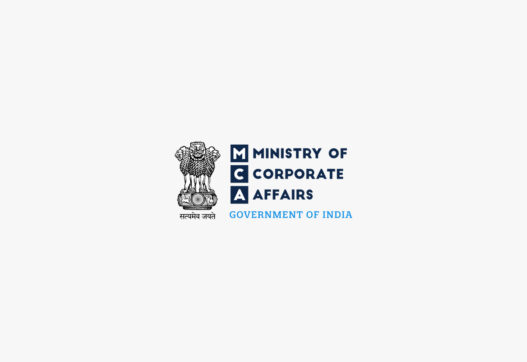Ministry of Corporate Affairs
The Chartered Accountants Act, 1949, is the principal legislation that governs the profession of chartered accountancy in India. This Act lays the foundation for the Institute of Chartered Accountants of India (ICAI), establishing its role in regulating the profession, defining membership criteria, outlining disciplinary procedures, and ensuring the maintenance of high professional standards among chartered accountants. It’s a crucial piece of legislation for professionals in accountancy and finance in India.
Act Background and Ministry: The Chartered Accountants Act, 1949, is a central law enacted by the Parliament of India. It falls under the purview of the Ministry of Corporate Affairs, which oversees its administration.
Enactment Date, Number of Chapters, Number of Sections: The act was enacted on May 1, 1949. It is structured into eight chapters with 33 sections along with two schedules.
Act Governed By: The Act establishes the Institute of Chartered Accountants of India (ICAI) as the governing body. It also lays down the role of the Central Government in issuing directions and making rules for better implementation of the act.
On Whom it is applicable: The Act is applicable to all individuals who wish to become chartered accountants in India and all practicing professionals once they are members of ICAI. It extends to all members and firms registered with the ICAI.
Penalties/Punishments: The Act outlines penalties for professional misconduct. This includes fines, removal of membership from ICAI, and imprisonment for various offenses. Penalties vary depending on the schedule under which the offense falls. Falsely claiming to be a member or using the name of the council illegally are punishable by a fine extending to Rupees One Lakh on first conviction. Using the name of the institute illegally in such a manner to imply that a certain qualification is achieved, could also lead to a fine extending to Five Lakh Rupees or imprisonment up to one year. Similarly, offenses for providing false or misleading particulars can also lead to penalty and legal consequences.
Important Pointers:
-
The Institute of Chartered Accountants of India (ICAI): The Act establishes the ICAI as a body corporate to regulate the profession, conduct exams, register members, and oversee disciplinary matters.
-
Membership: The Act defines two classes of members – Associates and Fellows. There are specific requirements outlined to attain membership, primarily by clearing the examinations and completing training.
-
Certificate of Practice: The Act mandates that a member must obtain a certificate of practice before providing professional services. This is essential for any chartered accountant who wishes to practice independently.
-
Disabilities for Members: The Act outlines situations in which a person is not entitled to membership, including being of unsound mind, being an undischarged insolvent, being convicted of moral turpitude, and removal from membership for misconduct.
-
Council of the Institute: The Act provides for the constitution, functions, and powers of the Council, the governing body of ICAI. It also establishes the role of the President and Vice-President.
-
Disciplinary Directorate, Board of Discipline, and Disciplinary Committee: These bodies are established to oversee disciplinary proceedings, investigate complaints, and ensure professional conduct among members.
-
Professional and Other Misconduct: The Act defines “professional misconduct” through two schedules. These set standards of conduct that chartered accountants must adhere to. The First Schedule mainly pertains to chartered accountants in practice and contains a list of misconducts and the Second Schedule specifies misconducts in relation to members generally.
-
Quality Review Board: The Act includes provisions for a Quality Review Board, established by the Central Government. This board aims to enhance the quality of services provided by chartered accountants.
-
Regional Councils: The Act authorizes the establishment of Regional Councils to advise and assist ICAI in its functions.
-
Penalties: The Act specifies penalties for various offenses. This includes falsely claiming to be a member, illegally using the name or common seal of the Institute and other violations. It also outlines the consequences for signing documents while not being qualified.
-
Power to make Rules and Regulations: The Act empowers both the Central Government and the Council of the Institute to make rules and regulations for carrying out the act effectively.
-
Reciprocity: The act has provisions for reciprocity, which allows the council to accept foreign qualifications and training, subject to conditions, unless the foreign nation prevents Indian accountants from becoming a member or practicing there.
-
Power to Issue Directions: The Act empowers the Central government to issue directions, and if needed dissolve the council of ICAI, in order to enforce effective compliance with the law.
-
Protection to Actions in Good Faith: The act states that the Central Government, the council, disciplinary authorities and its members etc are protected against legal proceedings for acts done under this law, if they are done in good faith.
Act Copy:




